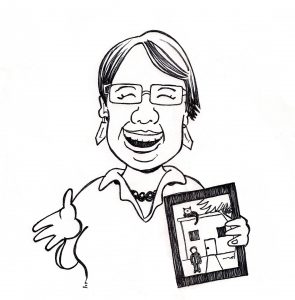CW: ABA / Applied Behaviour Analysis
ABA or Applied Behaviour Analysis is a ‘treatment’ for autism which is based in a series of rewards and punishments. ABA comes form the premise that autistic experience and expression, such as stimming, is somehow wrong. It is a system of trying to make autistic kids look ‘more neurotypical.’ It can be highly traumatic to kids, leaving them with post-traumatic stress in adolescence and adulthood. ABA goes against everything I believe in as an advocate and proud autistic person. ABA is often recommended to parents of newly-diagnosed kids. It has a large following in the USA but is in other countries too.
I have immense problems with ABA, as do many other autistic people and some parent allies. To punish a child for behaviours like stimming is horrific. Stimming is an autistic person’s way of self-regulating and self-soothing. It comes naturally to all fo us and is in no way ‘wrong.’ To publish a child for self-regulating is not therapeutic. It is abuse. Parents are often fed the line that ABA will make their child fit in better in the social world. What it actually means is that children learn how to mask in order to pass as neurotypical. Masking is not a positive attribute and means kids end up hating themselves and trying to be something they are not.
The training element of ABA can be likened to training a dog. It is an insult to treat autistic kids like this. Instead of trying to create autistic people who appear to be neurotypical because they have been taught to suppress who they are, why don’t we try to create a society which is respectful and inclusive of autistic people who do not need to mask because they are in fact perfectly OK just as they are?
There are a lot of considerations around ABA for advocates. Many of the ABA ‘therapists’ are young women who want to do something positive with their lives. They genuinely believe that ABA is a positive thing. In my travels I have met a number of these women who have realised how damaging ABA is and quit. I sometimes get friend requests on social media from ABA therapists and it leaves me very conflicted. On the one hand I want nothing to do with them but on the other I wonder if their being exposed to the content on my social media might change their thinking and result in them seeking alternate forms of employment.
Similarly I come across parents who are subjecting their kids to ABA and I don’t know what to do. Usually I have a conversation around my concerns with ABA but it is important not to be blaming I find. These parents may have never been around autistic advocates and have no idea about the Neurodiversity moment or Autistic pride. The clinician who diagnosed their child may well have been the one who recommended ABA. They may have not had any other opinions given them except that ABA will help their child. I know parents whose child was in ABA and who realised that it was damaging so stopped their child attending. I think this is becoming a situation that happens more frequently, however that is not to say that ABA is losing its influence and it is still important to have those conversations with parents.
So what do we do about this?
I think getting the message out to parents is key as they are the ones who initiate and pay for ABA ‘therapy.’ Enlisting parents who have taken their child out of ABA is probably key for this messaging as many parents are not willing or ready to listen to autistic advocates like me who have no kids. The next thing is to change the thinking of clinicians. Clinicians could recommend other strategies which actually support autistic kids and their wellbeing and development. It is also important to change society’s views about autism. If people understand autism as a difference rather than a defect and understood the great gifts that come with it, that would help address the issue. Things are changing but they need to change more. If instead of societal attitudes driving despair at a child’s diagnosis parents were encouraged to recognise the gifts of autism and saw their child as being different not broken then that would result in less demand for ABA.
I am for therapies which are genuinely helpful and therapeutic, not making autistic kids try to appear somehow less autistic. I am for support and kindness, not punishing children for hurting nobody and simply being themselves. ABA would not exist in a world where autistic people are valued just as we are.


I see ABA as being like racism. If we look at Australia up until 1972, if you were even an eighth or a sixteenth First Nations or Chinese, you suppressed it, and in some cases, people didn’t learn that they had a First Nations or Chinese forebear until after another forebear died, or they decided to do their own research. I didn’t know that my great-great-grandfather was West Indian until I did some research. It’s about trying to make someone appear more like the dominant ethnicity than they are.
LikeLike
Ben is 11 and never had ABA. The schools and doctors have pushed for it, but it’s not what we want for him. I actually love his stimming. Mostly its sounds. We call them his ‘Happy Noises’ and only ask him to lower the volume sometimes.
LikeLike
What other therapies or teaching strategies would you recommend to help young autistic children learn?
LikeLike
Things like speech therapy, occupational therapy can be really helpful. Also programs like Yellow Ladybugs or those offered by the I CAN Network or other autistic-run programs can be really helpful
LikeLike